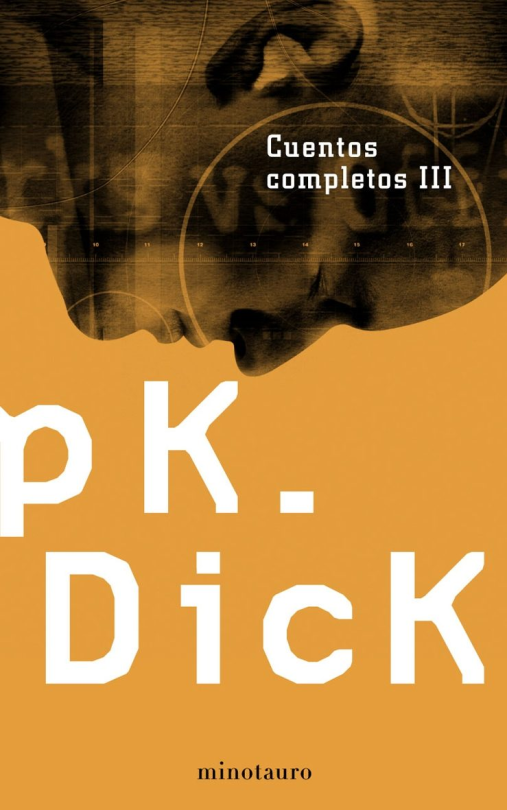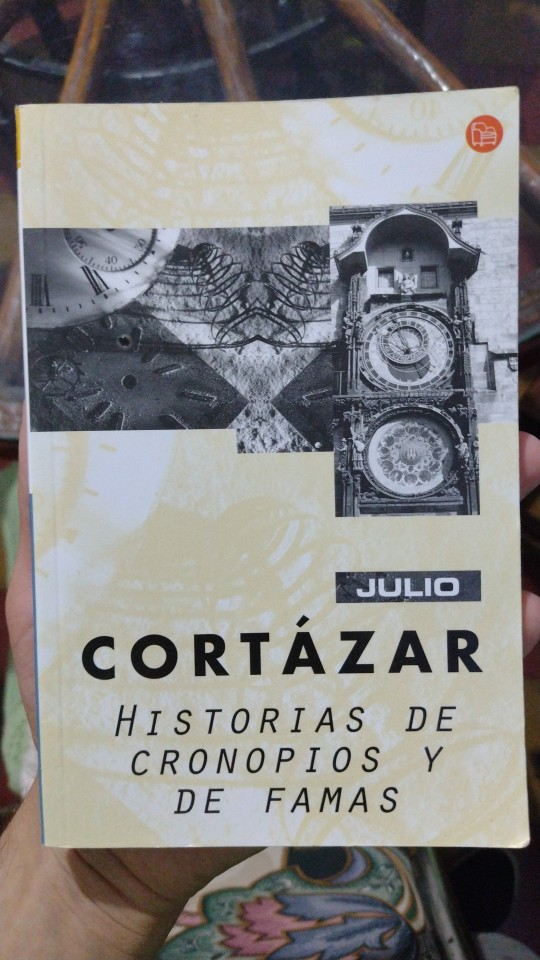
25 / Argentina / Gay nerd / Virgo / INTJ / Single / Slightly NSFW stuff / Book reviews / Me
248 posts
And With Those Two Last Books/reviews, I Finish This Year's Reading List. 30 Books Doesn't Sound Bad
And with those two last books/reviews, I finish this year's reading list. 30 books doesn't sound bad at all, I hope I can read that many and maybe some more next year!
📚 Mis lecturas del 2023 📚
¡Hola!
Lo venía haciendo en Twitter y decidí darle un mejor formato y mayor espacio, así que acá están mis lecturas de este año, en el orden en que fui terminando los libros.
Algunos los arranqué antes pero los pausé y continué con otro. Están clasificados y ordenados según la fecha en la que los terminé.
Enero:
Le Guin, Úrsula K. (1976) El Nombre del Mundo es Bosque. Editorial Minotauro
Albertalli, B. y Silvera, A. (2018) What if it's us
Klune, T. J. (2020) The House in the Cerulean Sea
Klune, T. J. (2020-2022) The Extraordinaries, Flash Fire, Heat Wave
Febrero/Marzo:
Continué lecturas, pero no terminé ningún libro, estaba preparando finales.
Abril:
Hall, Alexis (2020) Boyfriend Material
Doyle, Arthur C. (1902) El Sabueso de los Baskerville. Editorial Salvat.
Dick, Philip K. (1988) Cuentos Completos I: Aquí Yace el Wub
Hall, Alexis (2022) Husband Material
Mayo:
Marcos, Álvaro (2021) El Mago Merlín y el Poder del Dragón
Hall, Alexis (2022) Paris Daillencourt is about to Crumble
El-Motar, Amar, Gladstone, Max (2019) This is How you Lose the Time War
Miller, F., Janson, K., Varley, L. (1986) Batman: The Dark Knight Returns. Editorial OVNI.
Lewis, R., Mazzuchelli, D., Miller, F. (1988) Batman: Año Uno. Editorial OVNI.
LeBlanc, Maurice (1907) Arsène Lupin: Caballero Ladrón. Editorial Salvat.
Junio:
Dick, Philip K. (1989) Cuentos completos II: La Segunda Variedad.
Julio:
Silvera, Adam (2022) The First to Die at the End
Jemas, B., Bendis, B. M., Bagley, M., Thibert, A., Buccellato, S., Javins, M. (2001-2002) Spiderman, Poder y Responsabilidad. Marvel Comics. Editorial Salvat.
Álvaro, Marcos (2021) El Mago Merlín en la Torre Oscura
Agosto:
Machado, Antonio. (1899-1939) Poemas Esenciales. Selección de Jesús García Sánchez. Editorial Salvat.
Septiembre:
Stevenson, Robert Louis (1894) El Club de los Suicidas. Editorial Salvat.
Octubre:
Wells, Herbert George (1897) El Hombre Invisible.
Shelley, Mary (1818) Frankenstein, o el Moderno Prometeo
Capullo, G., Kubert, A., Lee, J., Snyder, S., Romita Jr., J. (2017-2018) Dark Nights: Metal. DC Comics. Editorial OVNIPRESS.
Noviembre:
Dick, Philip K (1989) El Padre-Cosa
Diciembre:
Millar, M. Kubert, A. & A. (2001-2002) Marvel Ultimave: X-Men. Men of Tomorrow. Return to Weapon X. Editorial Salvat.
Rothfuss, P. (2007) The Name of the Wind. DAW Books.
Cortázar, J. (2023) Historias de Cronopios y de Famas. 9a Edición. Buenos Aires, Punto de Lectura Editorial.
Arlt, R. (1926) El Juguete Rabioso. CAPÍTULO Biblioteca Fundamental Argentina. Centro Editor de América Latina.
-
 raiquen-reads reblogged this · 1 year ago
raiquen-reads reblogged this · 1 year ago -
 raiquen reblogged this · 1 year ago
raiquen reblogged this · 1 year ago -
 ereinionlomionar liked this · 1 year ago
ereinionlomionar liked this · 1 year ago -
 hallamfoe liked this · 1 year ago
hallamfoe liked this · 1 year ago
More Posts from Raiquen

felt cute, here's a bday selfie :)
Book Review: The Father Thing, Philip K. Dick

My Review in a Tweet:
In retrospective, I felt like I read it more like a chore, trying to read all five volumes this year. It has some good stories that left me thinking about the implicancies, but it was mostly filled with basic or uninteresting science fiction stories.
Complete Commentary:
I'm back! I just finished the third volume of Philip K. Dick's short stories, "The Father-Thing". I have to say, from the get-go, that it was probably the weakest one so far, with lower lows and not so great highs.
The more frequent topics and themes on this anthology are:
Ideologies and their radical extremes: from absolute polarization of society to political opinions taken to their most extreme realization, the author critizices and explores different ideas of his time, some of them being direct comments on recent publications.
Humanity and evolution: what will it be of humans in the future? The fate Philip K Dick envisions for us is rather dark or depressive in most of his stories.
Technology and humanity as a trait: Our relationship with technology is an evergreen topic in science-fiction, but in this anthology, it has a withered quality.
Clash of civilizations and classes
I'll make a short commentary for every short story, already ranking them from the one I liked the most to the one I liked the least:
Upon the Dull Earth: I realized while ordering up the stories that this was the one I liked the most and not the next one on the list. It feels more like a fantasy short story, but the ending is closer to a (cosmic?) horror tale.
The Golden Man: fantastic pace, fantastic ending.
Shell Game: the absolute paranoia of this colony and the TWIST. Loved it.
Sales Pitch: PKD said many people didn't like this story's ending and that he agreed with them. I disagree with both, the ending is great, but maybe because we like more cynical stories nowadays.
The Hanging Stranger: I love the ending, more themes of paranoia.
The Last of the Masters: it's unusual to read about anarchy, but it was very interesting, specially on the efforts to preserve some kind of hierarchy and burocracy.
Foster, You're Dead!: amazing satire, still relevant today.
War Veteran: I would really like to see this story adapted in a movie or series, it has great potential as a political intrigue/thriller.
A World of Talent: I rank it this high because of how convoluted and complicated the mutants' powers were. The plot itself dragged a bit too much.
Strange Eden: I like the ethereal feel of the story and the kind of "cautious tale" of the ending.
To Serve the Master
Fair Game
Pay for the Printer: I feel like we are headed this way with automated production and the lack of appreciation for manual crafts.
The Turning Wheel
Tony and the Beetles: relevant in today's political landscape.
Exhibit Piece: I despise the nostalgic feeling present in science fiction stories that imagine such a disastrous future that anything is preferred than that present, even flawed pasts. Even then, it's well narrated.
Null-O.
The Chromium Fence: I liked this satire as a valid commentary on today's need to always "pick a side", how pointing out valid critics to either viewpoint is considered as expressing symphaty for the other one. I disliked the ending, it felt like an easy way out.
The Eyes Have It: I liked it because it was fun, but I put it lower on the list because it feels very out of place in this anthology.
The Father-Thing: I liked better the author's explanation of this story, not the story itself.
Psi-man Heal My Child!: after reading A World of Talent, it felt very repetitive and unnecessarily complicated.
The Crawlers: pretty uninteresting.
Overall, I would give this book a:
6/10.
My other 2023 readings.

Come on, I know you want to do it.
Book Review: Historias de Cronopios y de Famas, Julio Cortázar

My Review in a Tweet:
Imagine you get a box filled with puzzle pieces, but they are all from different puzzles. You may see a familiar figure here, another face there, but no matter how you try to arrange the pieces together, you are sure it's not the meant image. Reading this book is like that.
My Full Review:
I became aware yesterday of my inappropriate lack of Argentinean authors in my reading list this year, and trying to mend that a little, I found this little book in a bookshelf while visiting my parents for the holidays.
While quite short, this book reminded me how much I ignore. I felt in a clear cultural disadvantage, where Cortázar (who some people may call the greatest Argentinean author) was playing a joke at my expense. I don't say this negatively.
Historias de Cronopios y de Famas is a collection of short stories, vague poems and... Nonsense. That's when the ignorance I felt started to creep in. I'm not sure of the exact literary current Cortázar belongs to, but this book read to me like an absurdist ramble without crossing over to dadaism.
I tend to believe that there are some clear themes of social and economic classes coating the short stories of the Cronopios, the Famas and the Hopes: they work as fictional and bizarre versions of Argentina's middle-to-low, high and (cultural) elite class respectively (I'm not sure about the Hopes). Cronopios are despised and treated condescendingly by the Famas, mocking their behavior and traditions, all too jovial and effusive and lazy; the Famas think too high of themselves and tend to use and abuse the other two; the Hopes seem to be trapped in an academic gasp, stunned by the lack of refinement of the Cronopios.
Even the short stories not directly related to the Cronopios and Famas act as a display of Argentina's idiosyncrasy, helped by the explicit mention of some elements, some places of this country (and more specifically, from Gran Buenos Aires).
But you have to remember that none of the stories really make sense. They are almost poetical, oneirical, nearing the realm of magical realism, very popular in Latin America.
The narration and writing themselves demand a lot of the reader's attention and time, forcing them to engage with the book to find some sense.
Again, I say all of this in a positive light: it's a challenging book in almost a literal sense, it presents itself innocently, like a bunch of nonsense, but soon you start to feel like there's something more underneath, like if under this outer coat of surrealistic and abstract tales laid a more tangible and grounded coat of the same color, merely a different tone but same color nonetheless.
I'm not sure how well this book would be received by non-argentinian or non-spanish speaking persons, but it's a good book anyways.
7,5/10.
My Other 2023 Readings.

5. 101 Dalmatians
Feel free to ask about the extra-spicy version 🔞😘🔥